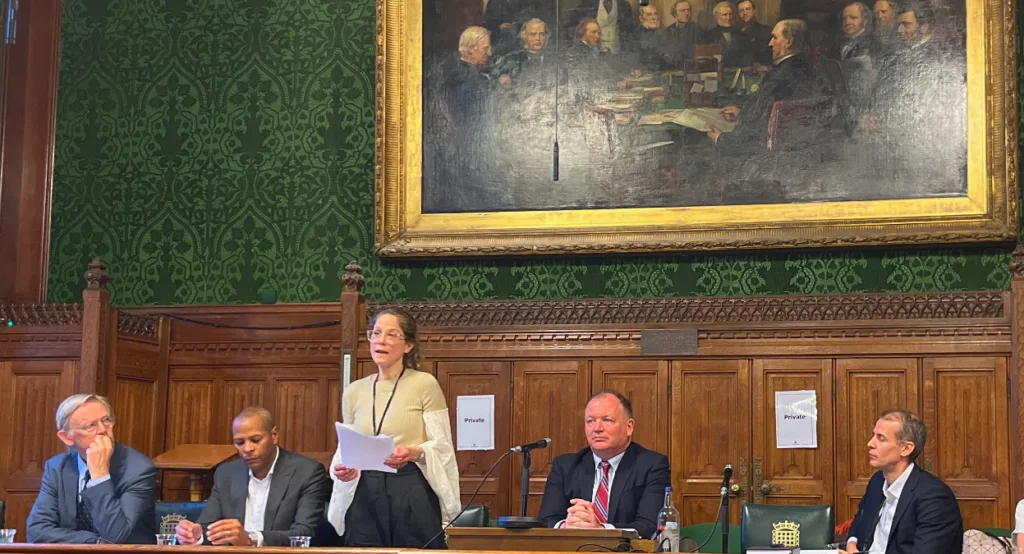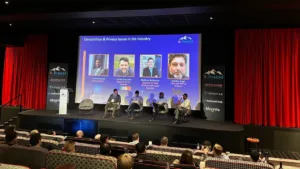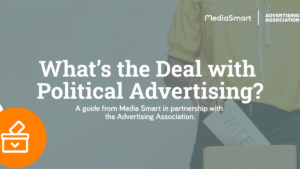By Cadi Jones, MD EMEA at Pixability
I didn’t know what to expect when I arrived at the Houses of Parliament on a damp Tuesday evening. I left 2 hours later filled with a renewed passion for our industry and the drive to do better.
The Advertiser Association and International Advertiser Association arranged two teams to debate “a strong UK ad industry is key to returning the economy to good health”. I arrived, somewhat awed by the surroundings of the Houses of Parliament, pretty adamant that I was in favour of the motion.
The case for the motion
Tammy Einav of Adam&EveDDB and Dominic Carter of The Sun at News UK made a compelling case, based on the advertising industry driving three Es: Employment, Exports and Economics. The case was further bolstered, as Dominic spoke to the industry’s larger role as a barometer for confidence, with the IPA’s bellwether report an indicator of trends far outside the advertising industry. I particularly appreciated the view of the advertising industry as a flywheel, rather than a mere observer of trends, stimulating innovation, choice and confidence, and uncovering further growth opportunities such as the untapped potential of multi-ethnic consumers (detailed in the Black Pound Report).
Opposing the motion
My conviction was entirely shaken however by the opposition, led by Patrick Foulis of The Economist and Sue Unerman of EssenceMediacom. While advertising is crucial to both businesses, they successfully argued that advertising alone is not enough to bridge the deficit that we’re in as a country. While the industry is important, we need to think bigger and collaborate more. It requires realism with the situation that we face. Advertising cannot be a silver bullet, and if relying on magical thinking got us into this situation, it cannot get us out.
I was won over to the ‘against’ case by Sue Unerman’s argument that through technology, we are no longer an island: we are connected to the world. She posited that we need to collaborate with different communities within the UK, with different countries and partners outside of the UK in order to broaden our horizons and return to a healthy economy.
The UK’s GDP is a function of our place in the world. Nationalism and isolationism get in the way of collaboration and growth, and we need more compassion and empathy not less to succeed.
However, I once again changed my voting plan, thanks to Tami Einav’s closing statement, meditating on what our industry really represents… hope.
At its core advertising is about hope
Our industry offers hope to so many people, in so many ways. Talking afterwards with Paul Mellor of Mellor & Smith, we discussed how advertising creative, often from challenger brands, can break societal taboos in a short spot, paving the way in a 30-second ad for commercial programming to reflect the changes in our society, and improve representation.
Similarly, with the rise of platforms, influencers and creators are able to fill gaps in the market and create content that resonates with under-represented and diverse communities. And increasingly we’re seeing brands actively supporting those diverse communities.
Personally, I think there’s also hope in technology. It allows us to learn about which cohorts of users are interested in our products and tailor our targeting to reach wider groups than the narrow thinking of an initial brief. And it allows us to feed those learnings into the product development cycle to ensure that products are developed to excite all potential consumers.
As programmatic advertising technology has evolved, it can allow quality publishers to earn a fair price for quality journalism. Brand suitability has improved to the extent that brands can support quality publishing, while also avoiding content that might not align with their values. This is as true for display advertising as it is for content produced by creators and uploaded to global platforms.
And so as I’m working on my 2024 planning in the coming weeks – as are many of my peers in the industry, I’m thinking not only about my team, and our business, but much wider than that, thinking of the future and the role that the advertising industry plays in turning the UK economy, and the wider global economy around. What can each of us do to bring more hope to the world?









